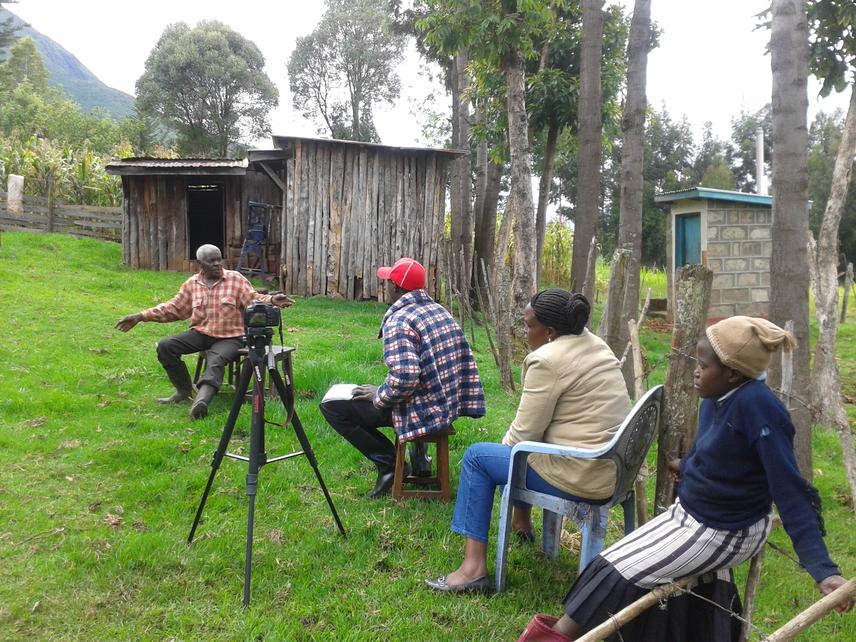Gloria Kendi Borona
Other projects
8 Jan 2019
Re-Chiselling the Three-Legged African Stool: Applying Indigenous Knowledge in Conservation
To explore and apply the potential of indigenous knowledge systems in enhancing sustainable forest resource use and improvement of community livelihoods.

Video recording of interviews with an elder.
This study aims to explore how people-forest relationships are forged around Aberdare Forest Reserve, and how indigenous knowledge systems of central Kenya communities around the Reserve might contribute to healthy, sustainable people-forest relationships in light of Kenya’s changing social, economic and political situations. It is expected to yield data on the community’s historical perception of the landscape, how this has changed through time, the Agikuyu worldview on how the forest is embodied in the life of the community and how indigenous knowledge can contribute to forging sustainable people-forest relationships, arguably the planet’s most threatened resource. This project is anchored on the belief that communities remain a key stakeholder but an underutilized resource in forest management.
Knowledge is an underutilized resource in Africa and more so indigenous knowledge because it thought to be backward, since it is not informed by formal education. Engaging in an exploration of indigenous knowledge is a struggle against forgetting. This study seeks to explore IKS through four thematic areas - water catchment, non-timber forest products, landscape governance and sacred sites. The Kenyan economy is driven by agriculture and tourism and the aspect ensuring that water catchment areas are protected is directly tied to community livelihoods. According to the Kenya Forest service (the government Agency responsible for forest management) there is no clear understanding of the range of NTFP’s in the country and this study contributes to a better understanding and sustainable use of resources. Landscape governance opens space for dialogue on forest management by imagining other ways of resource governance from the community’s perspective. A better understanding of sacred sites is critical because it is spaces like these that have safeguarded critical ecosystems and biodiversity. Further, the project seeks to engage the community in the research process as key stakeholders and not just a source of data. It seeks to seek solutions to resource and livelihood issues at the community level and to build on that to forge sustainable forest management practices.